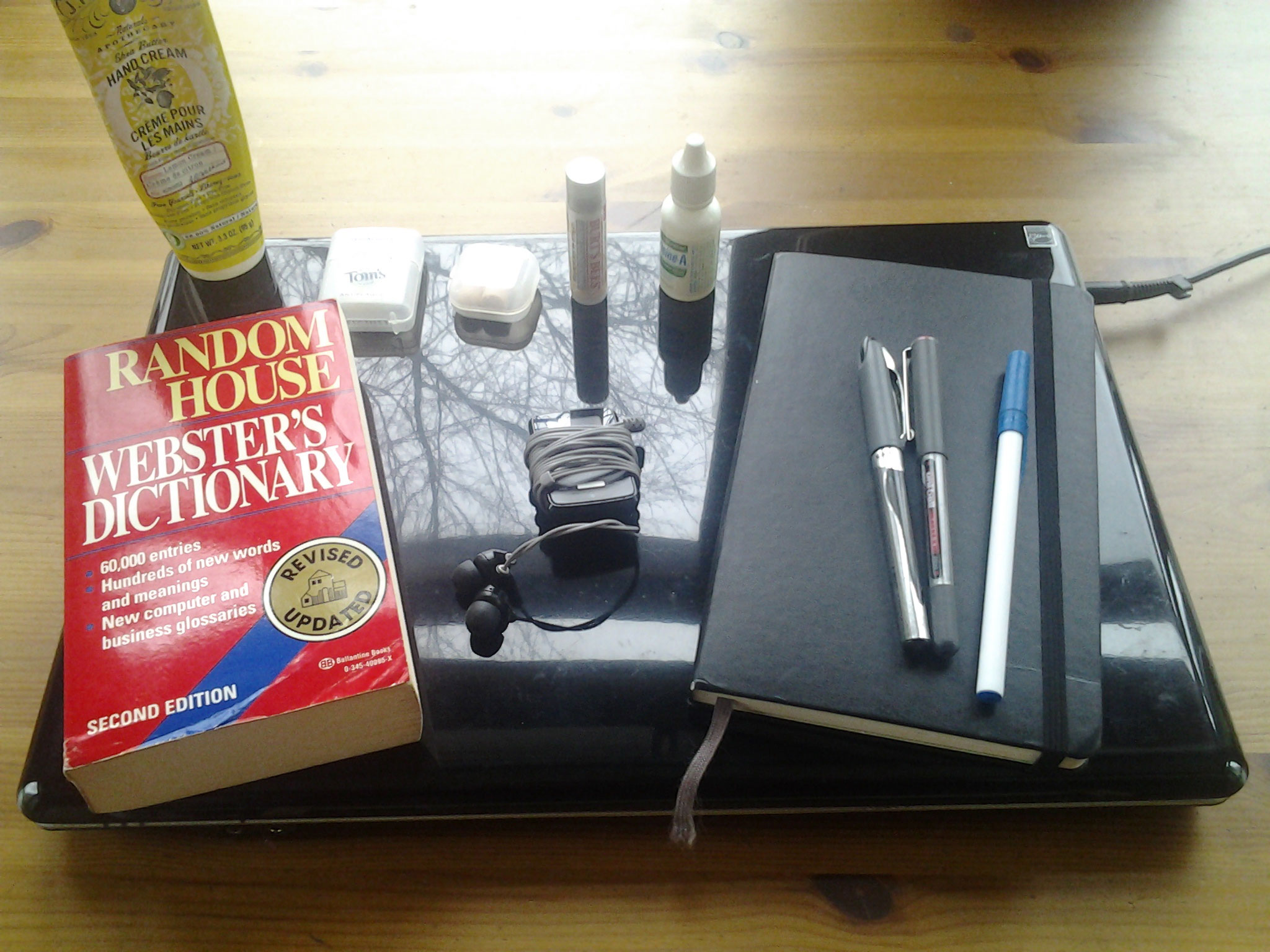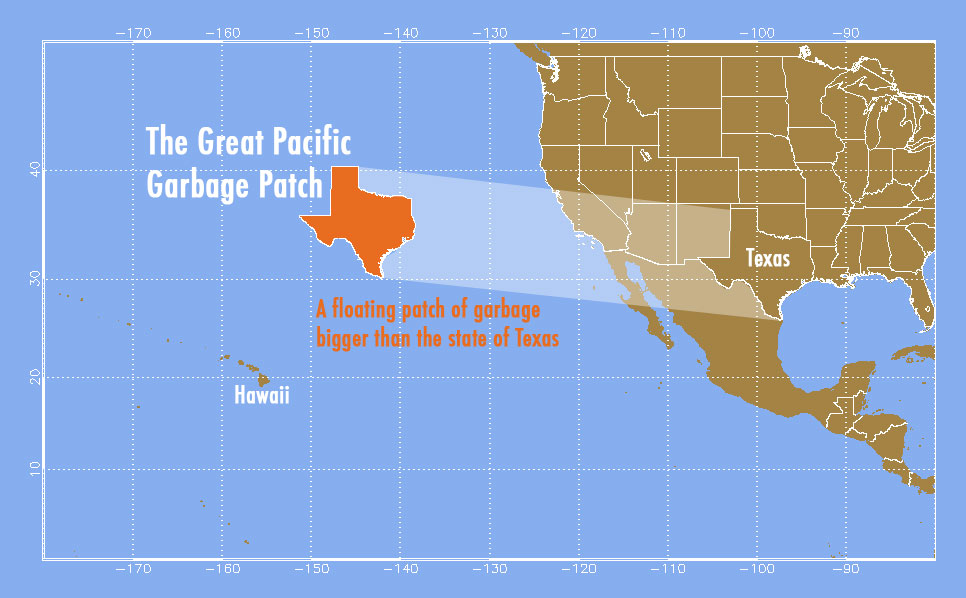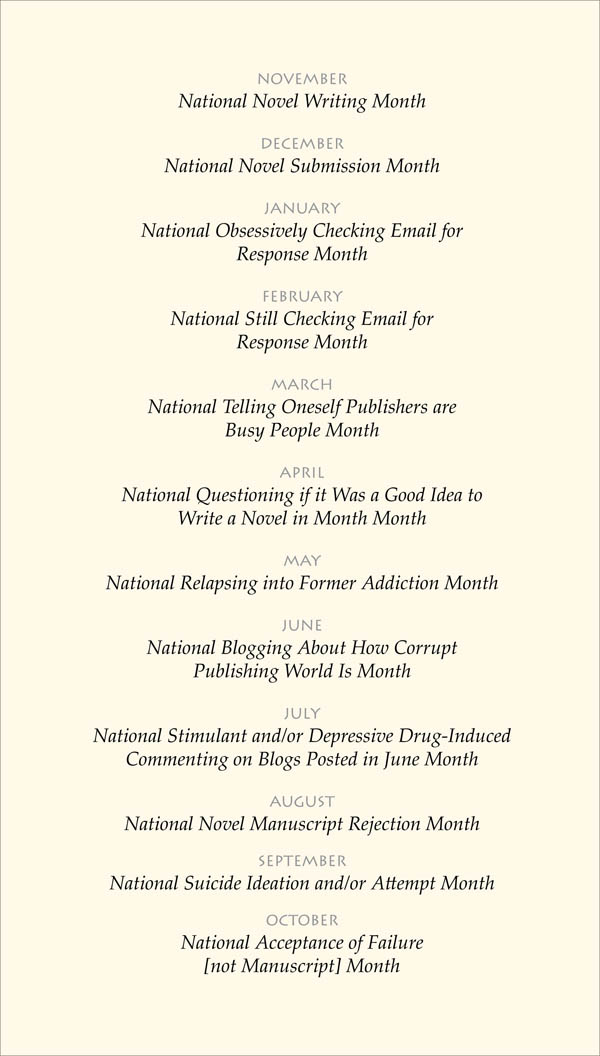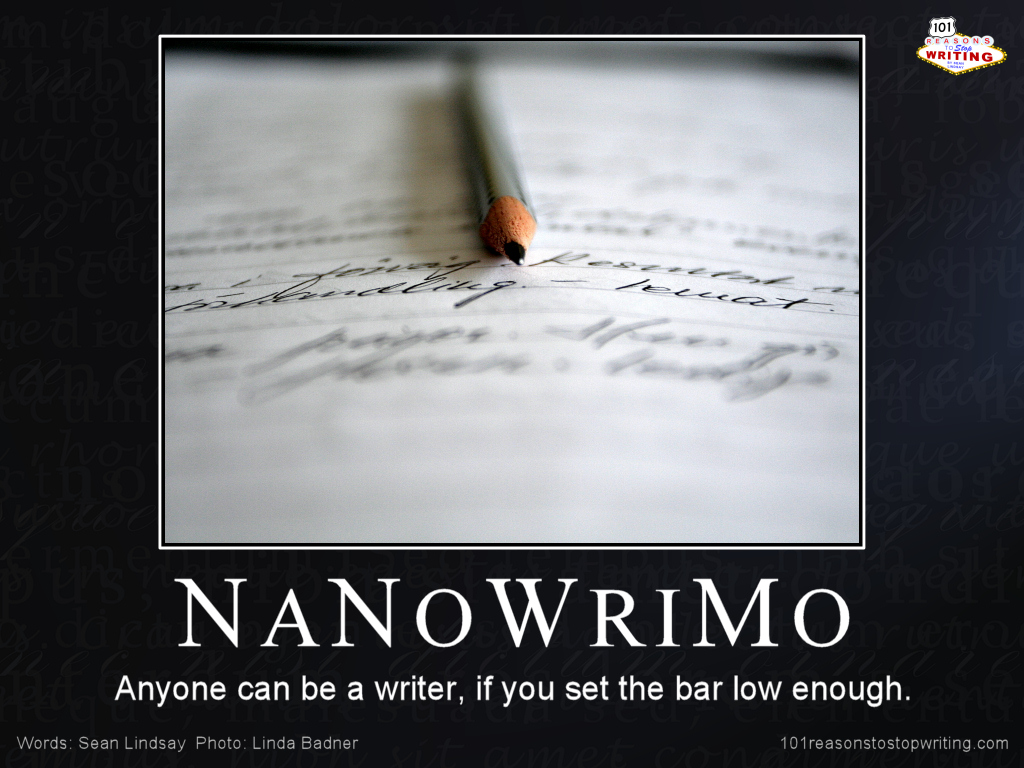How I wrote my latest novel, part 1
I’ve wanted for a while now to try writing a story “live” here, posting my work as I went from initial idea to finished piece. I might still do that, but for now, here’s a related series of posts. I spent the past forty days writing a new novel (“Lisa & Charlie & Mark & Suzi & Monica & Tyrell,” though my working title was “The Porn Novel”), and want to share with you how I did that. My hope is this will prove less an exercise in vanity and more something instructive—like, you might want to do the exact opposite of me.
Let me state up front that I don’t think there’s any one way to write novels, or fiction, and I don’t approach all of my projects in the same way. And what works for me may not work for you. But I have developed some basic procedures that I find useful and that you might enjoy trying. Also, this time around, I encountered some formal problems that should make for good discussion.
I write pretty quickly, but forty days is the fastest I’ve written a novel. (This is the third one I’ve really completed.) My first novel, Giant Slugs, took nearly a decade from start to finish, during which time I wrote three completely different versions of the book. That experience was, on the whole, difficult and often mystifying. Only in the final two years, when I wrote the final version of the novel, did I feel as though I understood what I was doing, and even then I felt crazily out of control most of the time. I had by then a Master’s in Creative Writing, but never received much instruction in novels, so I had to figure out a great deal on my own. (Perhaps that’s inevitable?)
I wrote my second novel, “The New Boyfriend” (still unpublished) as an anti-Giant Slugs: whereas GS is a mock-epic with dozens of characters and locations, covering several years, “TNBF” is a single scene featuring four characters, set in a single location on a Sunday afternoon/evening. That project took me seventy-five days total, which taught me that time is a resource, and some projects take less of it than others. I’m sure I’ll return to more time-intensive projects later, but for now, I’m having fun sprinting.
Recently I’ve wanted to try writing a novel in one month, and when I dreamed up this new project, it seemed a good candidate for that. (And, no, I’ve never done NaNoWriMo, though I have done the 3-Day Novel Contest about six times. I learned a lot from doing the 3-Day, but never produced what I’d consider a finished novel.)
ToBS R1: NaNoWriMo vs. ‘What is your novel about?’

[Matchup #12 in Tournament of Bookshit]
On “What is your novel about?”…
The kneejerk hatred of “Wiyna?” has partly to do with the dread of trying to encompass an entire novel in a soundbite, along with the sense that revealing something that took a lot of effort and patience to write a novel about, something that the author may have spent a long time probing the aboutness of, something that now probably has an amount of sacredness to the author, to casually remark, “It’s about…” can be taken as an attempt to devalue/demystify the novel from the author’s point of view.
But for as loaded as the question comes at the author, it is almost a necessary question for the asker on a primary level. To be in conversation with an author who says, “I wrote a novel.” and says no more, it’s human nature to at least think the question “What’s it about?” or “What is it like?” or “Can you please give me some kind of concrete idea or image related to your novel so I can attach it to my memory of ‘you wrote a novel.'” One reason the asker may not completely appreciate the weight of the question is because many products of mainstream entertainment have obvious aboutnesses. For the sake of casual conversation, “Schindler’s List” is simply about the holocaust. “J. Edgar” is about J. Edgar Hoover. “Superman,” “Spiderman,” and “Batman,” are about Superman, Spiderman, and Batman, respectively. When your novel’s title is a bit abstract like “There Is No Year” or “Us,” the mind has a hard time nailing down even a thread of aboutness. And human beings like aboutnesses. They like people who like aboutnesses. So answering the question politely may leave an impression on the asker that this author is a nice person and maybe we can be friends now. READ MORE >
NaNoWriMo Tips from Mark Sample
 A little over a week has passed this NaNoWriMo, and though I am pretty much skeptical of the whole production, I have to say that I’m cracking up at some of the NaNoWriMo tips that Mark Sample sends out on his twitter feed. Follow him at samplereality (you’ll have to scroll through his feed to find his old ones) to get tips. Here’s a handful that I enjoyed:
A little over a week has passed this NaNoWriMo, and though I am pretty much skeptical of the whole production, I have to say that I’m cracking up at some of the NaNoWriMo tips that Mark Sample sends out on his twitter feed. Follow him at samplereality (you’ll have to scroll through his feed to find his old ones) to get tips. Here’s a handful that I enjoyed:
#NaNoWriMo Tip: Reenergize your writing by changing your workspace. Move out of your parents’ basement.
#NaNoWriMo Tip: Rehearse for your imminent book tour by showing up drunk at a Borders and telling everyone “I’m here to sign my books.”
#NaNoWriMo Tip: Add tension by making the gender of your narrator indeterminate. This works for race too. And age. And number of nipples.
#NaNoWriMo Tip: Writing about a brilliant professor who solves 1,000-year-old mysteries? This is for you. Why does my cat puke in my shoes?
#NaNoWriMo tip: “Write about what you know” is good advice, unless you’re OJ Simpson.
#NaNoWriMo Tip: RT @wshspeare Take advantage of the rich tradition of stealing other writers’ ideas and words when you run out of your own.
#NaNoWriMo tip: Use foreshadowing to hint what’s to come. E.g., have the vampire say “I want to suck your blood” before he sucks blood.
#NaNoWriMo tip: Novelists should dress for success just like everyone else. Failing that, novelists should at least dress.




 Today, people all across everywhere have typed the first word on their way to writing 50k words that should resemble in some way a ‘novel.’
Today, people all across everywhere have typed the first word on their way to writing 50k words that should resemble in some way a ‘novel.’